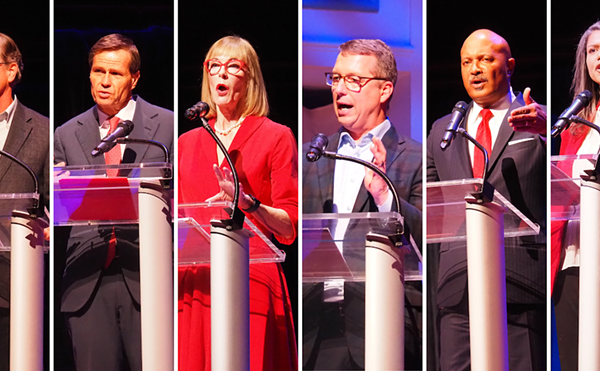|
"Can you see the pride in the panther, as he glows in splendor and grace?"
When I developed the concept for The Ledge (my monthly column focusing on positive Hip Hop music and culture), I never thought I'd be writing a piece on Tupac Shakur. While he was alive and building his Thug Life persona (and thereby making what appeared to be a Malcolm X-to-Malcolm Little metamorphosis), I had my head buried in the self-righteous comfort of early-'90s, Rodney King-era Hip Hop consciousness.
Aside from my apparent East Coast bias, part of the problem was my attempt to make sense of the exploding, bi-coastal Rap scene by categorizing artists into neatly defined sub-genres. West Coast Rap music was gaining momentum as not-so-subtle references to L.A. gang culture blurred the line between chronicling life on the streets and glorifying it. So when I shopped for music, I drew an imaginary border separating Rakim, Brand Nubian and KRS-One from the likes of Mac 10, MC Eiht and DJ Quik — lyrical activists on one side; lyrical gangsters (real or otherwise) on the other.
In my limited perception, Tupac had always fallen on that other side.
That was then. Now, I'm finally beginning to understand why so many true Hip Hop fans saw something in 'Pac that I never knew existed. They saw a lyrical prophet — a revolutionary in thug's clothing.
I saw a bright, gifted and impressionable rapper who reinvented himself by embracing the very image of urban masculinity that mass media has been trying to sell us for years. Right before our eyes, Tupac Shakur became Bishop — the hopelessly angry and reckless character he portrayed in 1992's Juice. Perhaps we all had it right — and wrong — to varying degrees. It was as if 'Pac took the infamous red pill and never swallowed.
Early in Tupac's career, I quickly embraced the spark of social and political commentary apparent in his lyrics. I recall purchasing 2Pacalypse Now in 1992 and looking forward to hearing more from this energetic newcomer who, on "Words of Wisdom," said, "It's time to start nation building/I'm fed up, we gotta start teaching children/That they can be all that they wanna to be/There's much more to life than just poverty ..."
Though not entirely surprising material from someone whose mother was an ex-Black Panther and a product of late-'60s and early-'70s political ideology, it was refreshing to finally hear a left coast lyricist articulate the anger and restlessness of the streets while avoiding the peachiness label that followed many of his East Coast counterparts.
That's when "it" happened. What "it" is will likely be a topic of debate for many years to come as scholars, cultural critics, fans and detractors deconstruct the mystery that surrounds Tupac Shakur. His apparent obsession over his own death, his numerous confrontations with the law (including the regretful nightclub incident involving the 19-year-old woman), a string of successful albums, the late-night studio ambush, the money and the "Suge factor" all contribute to the version of Tupac Shakur most commonly portrayed in the media. I'm beginning to suspect that the real Tupac Shakur never had a chance to stand up.
Eight years after Tupac's death, numerous documentaries and retrospectives suggest that he had never lost his passion for the struggle of the disenfranchised despite the often outwardly hostile, disrespectful image that has become a part of his legend. One such documentary suggests that he was on the verge of joining an Atlanta-based branch of the Black Panther Party when he received an offer to join the Oakland-based Hip Hop collective, Digital Underground, as a dancer and back-up lyricist. Numerous books on Tupac's life describe his intense interest in politics, religion, philosophy and metaphysics. His poetry — most notably his collection, The Rose that Grew from Concrete — portrays an introspective, spiritual and contemplative side of Tupac that rarely came through in his later music. It is saddening to consider how a single man could have redefined the direction of Hip Hop music and culture had he had an opportunity to evolve.
As I look back, I regretfully admit that I dismissed much of 'Pac's catalog of material (including the miraculous amount of posthumous releases) as little more than the typical blunt- and Hennessy-laced narratives that shape much of today's Hip Hop music. Yet as more about the man behind the mic emerges, I can now see that both Tupac Shakur and artists like X-Clan, Paris and Public Enemy were "fighting the power" from vastly different corners of a common battlefield. And with six albums released since his untimely death in 1996, 'Pac's legacy clearly continues to live.
Who knew? Apparently millions. I only wish I hadn't found out so late.
KEVIN BRITTON writes about Hip Hop music and its impact on popular culture. His column appears monthly in CityBeat.





